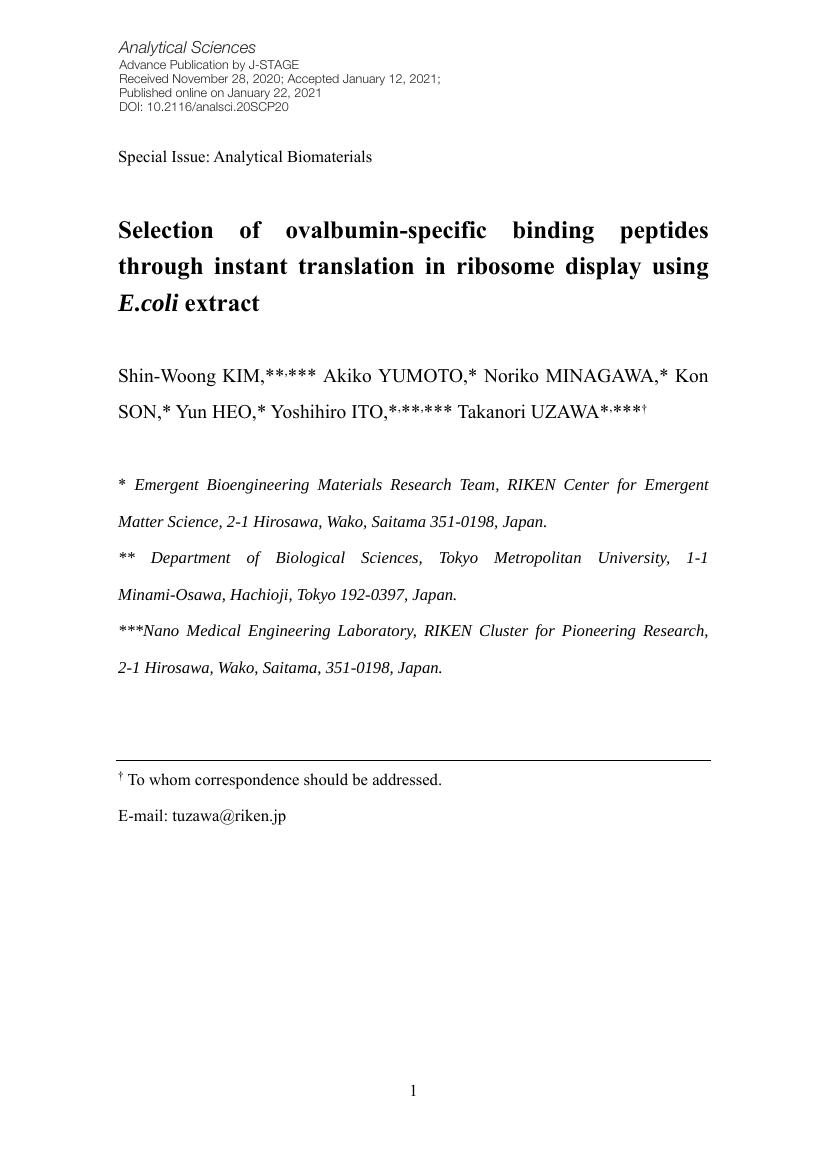- 著者
- Morteza M. Saber Marziyeh Karimiavargani Takanori Uzawa Nilmini Hettiarachchi Michiaki Hamada Yoshihiro Ito Naruya Saitou
- 出版者
- The Genetics Society of Japan
- 雑誌
- Genes & Genetic Systems (ISSN:13417568)
- 巻号頁・発行日
- pp.20-00012, (Released:2021-03-24)
- 参考文献数
- 56
- 被引用文献数
- 4
Down syndrome in humans is caused by trisomy of chromosome 21. DSCR4 (Down syndrome critical region 4) is a de novo-originated protein-coding gene present only in human chromosome 21 and its homologous chromosomes in apes. Despite being located in a medically critical genomic region and an abundance of evidence indicating its functionality, the roles of DSCR4 in human cells are unknown. We used a bioinformatic approach to infer the biological importance and cellular roles of this gene. Our analysis indicates that DSCR4 is likely involved in the regulation of interconnected biological pathways related to cell migration, coagulation and the immune system. We also showed that these predicted biological functions are consistent with tissue-specific expression of DSCR4 in migratory immune system leukocyte cells and neural crest cells (NCCs) that shape facial morphology in the human embryo. The immune system and NCCs are known to be affected in Down syndrome individuals, who suffer from DSCR4 misregulation, which further supports our findings. Providing evidence for the critical roles of DSCR4 in human cells, our findings establish the basis for further experimental investigations that will be necessary to confirm the roles of DSCR4 in the etiology of Down syndrome.
- 著者
- Shin-Woong KIM Akiko YUMOTO Noriko MINAGAWA Kon SON Yun HEO Yoshihiro ITO Takanori UZAWA
- 出版者
- The Japan Society for Analytical Chemistry
- 雑誌
- Analytical Sciences (ISSN:09106340)
- 巻号頁・発行日
- pp.20SCP20, (Released:2021-01-22)
